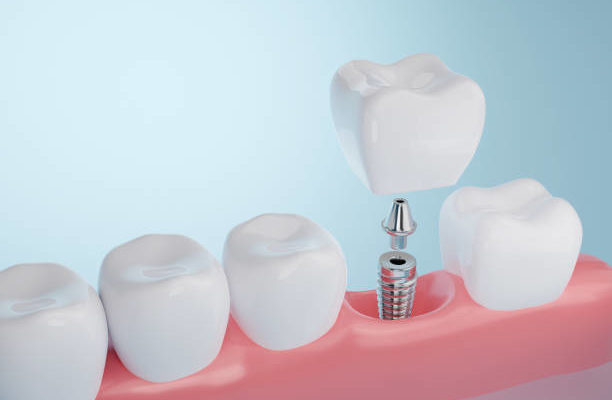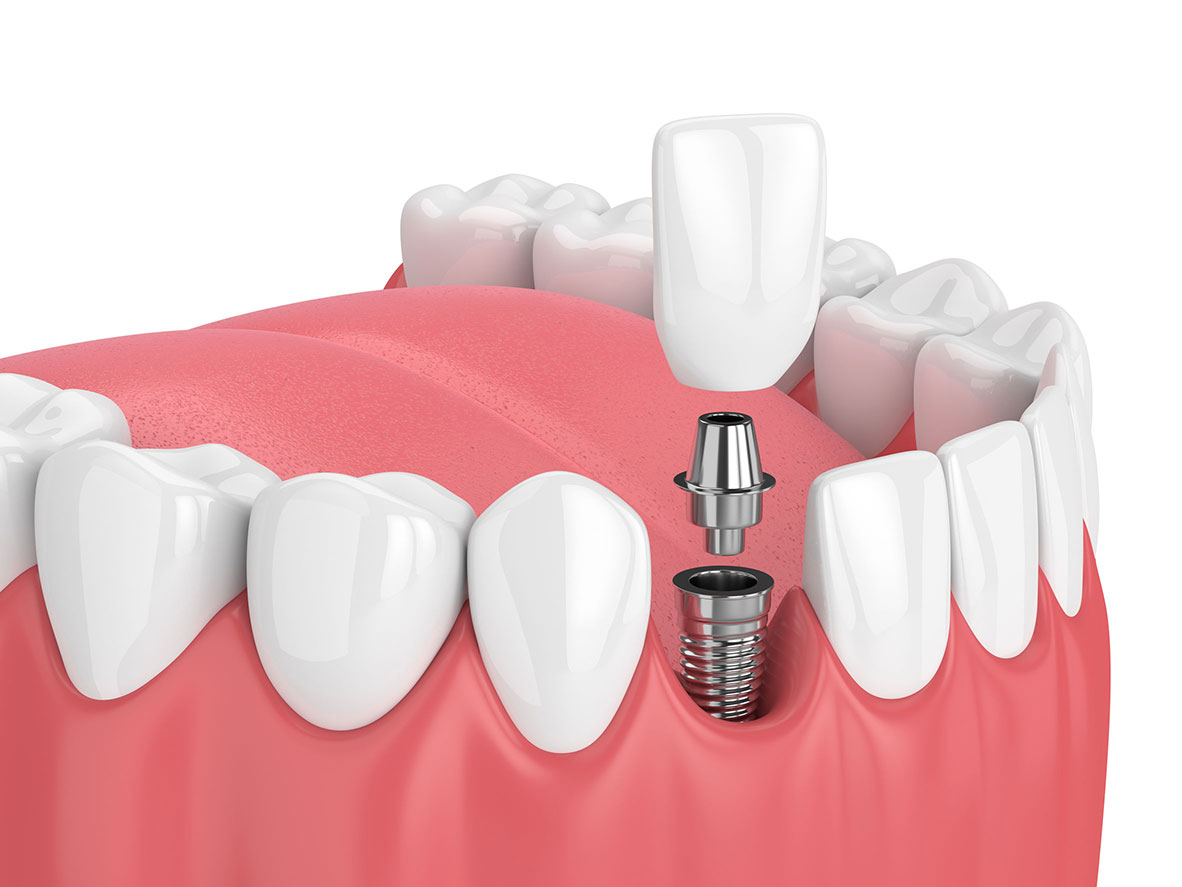
What are the different dental implants and which one is right for you?
Dental implants are an increasingly popular solution for replacing missing teeth. Acting as an artificial root, they provide a solid foundation for a crown or bridge. But with so many different types of implant available, how do you know which is best for you? Let's take a look at the different options and their benefits to help you make an informed choice.
Endosseous implants: the standard solution
Endosseous implants are the most commonly used. They are inserted directly into the jawbone and serve as an anchor for artificial teeth. The majority of current dental prostheses use this technique, mainly because of its reliability and high success rate.
Advantages of endosseous implants
This type of dental implant closely mimics the natural structure of the tooth, offering exceptional stability. Implant surgery is relatively straightforward and can be performed under local anaesthetic.
The titanium used in these implants is biocompatible, which means it integrates well with natural bone without causing any adverse reaction. What's more, these implants are highly durable, often considered a permanent solution for replacing missing teeth.
Risks and complications
Although the risks are low, some complications may occur. Infections or healing problems can affect implant integration. So it's crucial to follow all post-operative recommendations made by your dental surgeon.
Subperiosteal implants: when bone is insufficient
Subperiosteal implants are located above the jawbone but below the gum line. This type is recommended when the jawbone is insufficient to support an endosseous implant, and the patient is unwilling or unable to undergo bone grafting.
Shape and materials of subperiosteal implants
One of the major differences between subperiosteal and endosseous implants is that they do not require deep insertion into the bone. This minimizes some post-operative pain and often shortens recovery time.
Limits and drawbacks
Unfortunately, these implants are not as stable as endosseous implants. They can sometimes lead to gum irritation. Their cost is also generally higher, due to their specific nature and the additional materials required.
Mini implants: a fast, temporary solution
Mini implants are a smaller version of conventional implants. They are often used for temporary situations or to stabilize removable prostheses. Although they are less invasive to install, they are not always suitable for all patients.
Advantages of mini implants
The small size of these implants makes the procedure much less invasive, often possible with a local anaesthetic. The whole process, from installation to healing, is much quicker than with standard implants.
What's more, mini implants generally cost less than their larger counterparts, offering an economical option for many patients. They are ideal for stabilizing a removable prosthesis or replacing a single tooth in an area of low masticatory stress.
Considerations and limitations
These implants do not provide the same level of support and durability as full-size implants. They are mainly recommended for temporary or provisional solutions. If the clinical situation requires significant masticatory force, they may not be appropriate.
Zygomatic implants: for extreme cases
Zygomatic implants are used in conditions where the jawbone is extremely deficient. These implants anchor in the zygomatic bone (cheek bone) rather than in the jaw itself.
Technical details and benefits
It's an innovative method of bypassing the need for complex bone grafting. Very useful for patients with severe bone resorption, zygomatic implants offer a viable solution where other methods fail.
They have a high success rate, often restoring near-normal masticatory function in patients who would otherwise not be candidates for conventional implants.
Potential complications
Like all complex surgical procedures, this one carries certain risks. The main complications include sinusitis, temporary facial numbness or infection. A thorough consultation with a specialized dental surgeon is essential before considering this option.

Choosing the right type of implant: criteria to assess
- Bone condition: The quality and quantity of available bone often determine the appropriate implant type.
- Budget: The price and cost of different implants vary significantly. Consider your budget while weighing the long-term benefits.
- Medical conditions: Certain diseases or medical treatments may affect your ability to receive a particular type of implant.
To determine exactly which implant is right for you, you need to consult a dental professional who will evaluate these criteria and other specifics of your individual situation.
Post-operative preparation and follow-up
Before any operation, careful preparation is crucial. X-ray examinations and detailed planning guarantee optimum results. After implant placement, scrupulous adherence to your dentist's advice and instructions is essential to prevent complications.
Regular follow-up visits will enable the practitioner to monitor the healing process and ensure the long-term success of your dental implant.
Ultimately, choosing the right dental implant will depend on a number of factors specific to your case. Never hesitate to seek several opinions and discuss all your options in depth with your dentist to find the best solution for your needs.
Dental implants : which implant is right for you?
Dental implants are an effective solution for replacing missing teeth and restoring masticatory function and smile aesthetics. There are several types of dental implants to suit the specific needs of each patient.
The choice of implant depends on several factors:
- Condition of your jawbone - X-ray analysis required
- Number of teeth to be replaced - A single implant or a complete solution (implant-supported bridge)
- Your budget - Different options depending on materials and implant type
- Your aesthetic and functional expectations
At the Centre Dentaire Chêne-Bourg, our specialists will advise you and carry out a personalized diagnosis to offer you the best solution for your oral health.
Discover also the Centre Dentaire Lancy and the Centre Dentaire Champel





